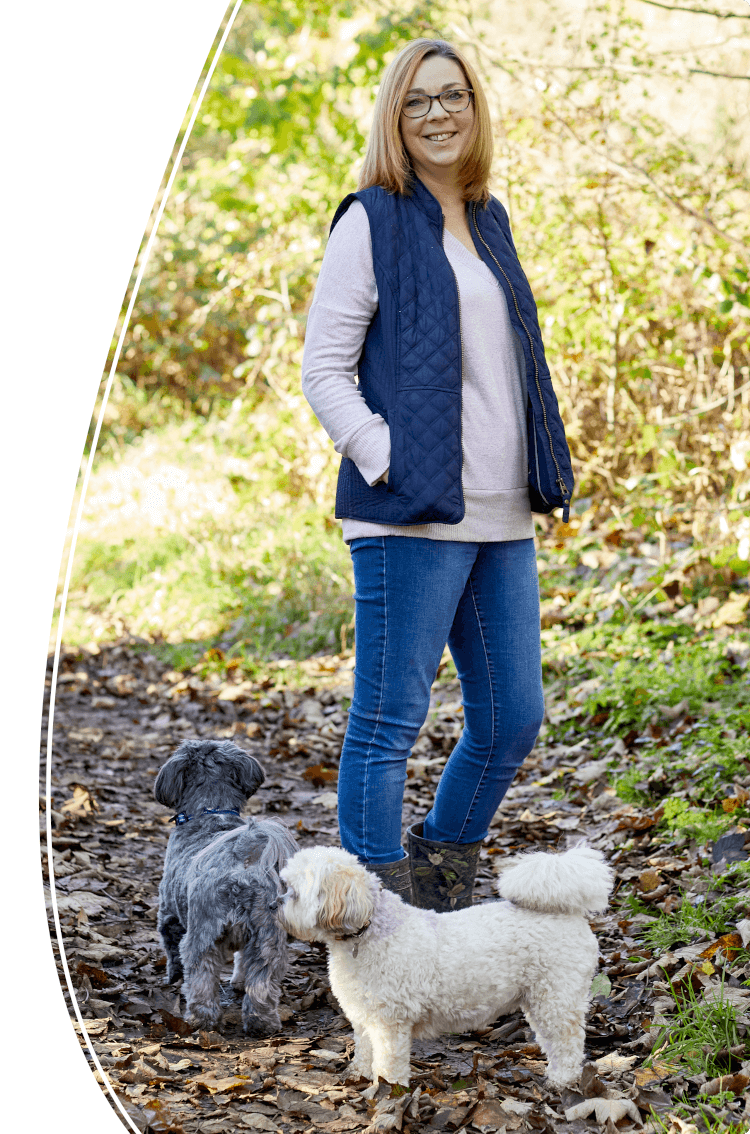Seasonal Affective Disorder (SAD): why this is more that just the ‘winter blues’

As the days grow shorter and the evenings darker, many of us notice changes in how we feel. It might begin with lower energy, heavier moods, or finding it harder to stay motivated.
For some, these seasonal changes go beyond the ‘winter blues’. They can develop into Seasonal Affective Disorder (SAD) which is a form of depression that’s linked to the changes in seasons, most often in autumn and winter.
While this can feel unsettling, there are reasons why these shifts happen. And by understanding them, we can respond with more compassion, more kindness and importantly, we can find supportive ways to help ourselves and others.
What causes SAD?
It’s believed that SAD is connected to the reduction in sunlight during autumn and winter. Our brains and bodies are finely tuned to light and rhythm and so, when the seasons shift, several important processes are affected:
Melatonin
Melatonin is the hormone that makes us feel sleepy. Darkness stimulates it production, while light suppresses it.
In the shorter days, your body may produce more melatonin that usual and this can leave you feeling more tired, sluggish, and less motivated.
Serotonin
Serotonin is one of our ‘happy hormones’, and helps to regulate mood, appetite, and sleep.
Sunlight boosts serotonin levels in the brain and with less exposure to sunlight, serotonin levels can drop, which is linked to low mood and depression.
Circadian rhythm
Your circadian rhythm is your internal body clock, regulating when you wake, sleep, and function best.
This rhythm relies heavily on light signals and with shorter days, the body clock can become disrupted, leading to disturbed sleep, lower energy, and mood changes.
Together, these shifts explain why SAD can feel so overwhelming. The brain is simply responding to the change in light, and the body follows.
How SAD can affect you
SAD shows up differently for everyone and some common signs include:
- Persistent feeling of sadness, emptiness, or hopelessness.
- Loss of interest in activities that you once enjoyed.
- Fatigue or low energy, even after rest.
- Feeling anxious, angry or agitated.
- Difficulty concentrating or making decisions.
- Changes in sleep patterns, either too much or too little.
- Withdrawing from friends and family.
- Changes in appetite, such as craving comfort foods or eating less than usual.
Gentle ways to support yourself
Although we can’t change the seasons, there are small, supportive self-care steps that can help and make a difference:
- Get outside during daylight – even a morning cuppa outside or a short lunchtime walk can help.
- Eat well – a balanced diet and plenty of water will keep your brain energised.
- Move your body – exercise, especially outdoors, can help to improve mood and sleep.
- Brighten your space – sit near windows, let in natural light, and make your environment uplifting.
Prioritising your self-care is so important. It’s easy to dismiss self-care as a ‘treat’ or even something you’ll get round to when everything else is done. But, and this is something I often remind my clients about, we all need to recognise that self-care is definitely not a luxury. It’s vital for our mental and physical health and wellbeing. It’s how you give your brain and body the care they need to support you.
Brain-based forward-focused approach
Solution Focused Hypnotherapy doesn’t dwell on the past. Instead, it helps you gently shift your focus: from what’s wrong to what’s possible.
It blends talking therapy with guided hypnosis (a deeply relaxing, natural state a bit like daydreaming) to help you access the intellectual part of your brain. The part that’s rational, creative, and resilient.
In this relaxed state, your conscious mind quietens. You become more open to forming new, healthier patterns of thought and behaviour. Over time, this can help to:
- Reduce stress and anxious thoughts.
- Calm the nervous system.
- Support better sleep and improve energy levels and concentration.
- Build resilience and find the ways that work for you to deal with seasonal challenges.
It isn’t about “pushing through.” It’s about giving yourself the space and tools to feel supported, even during those darker days.
Solution Focused Hypnotherapy provides a safe, empathetic and compassionate space to help you rediscover your strengths and resources and be able to move forward with hope and confidence.
One small meaningful step at a time
If you find the changing seasons difficult, you are not alone. Many people feel this way, and it’s not a weakness. It’s simply how the brain and body respond to light and rhythm.
By understanding what’s happening, and practising a little self-care, you can navigate the darker months with greater calm, balance, and resilience.
And if you’d like to explore how hypnotherapy could support you this winter, I’d love to talk with you.
One gentle meaningful step at a time, I can support you to find your inner freedom from what’s holding you back and move forward to make those positive changes in your life.
You can find some helpful information and self-care tips in another of my blogs, Self-care and self-kindness: Rewiring your brain for confidence and wellbeing – Katie Deacon – Hypnotherapist & Life Coach. You can also read more on my Depression Hypnotherapy in Nottingham – Katie Deacon page or you can contact me for a free 45 minute consultation by email at katie@katiedeacon.co.uk.
More Blog Articles







